Check out these fun facts and awesome discoveries about 11 founding fathers of math!
1. Diophantus of Alexandria
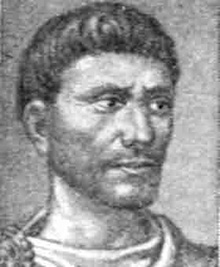
(Photo Source: Wikipedia)
Greatest Discoveries: Diophantus studied at the University of Alexandria in Egypt, where he cultivated an intense appreciation and understanding of numbers. He then wrote a series of thirteen books called Arithmatica. Only six of these books survived, however they are still considered crucial for defining modern algebra. These books included over 150 algebra problems that Diophantus solved.
Fun Fact: Not a lot is known about Diophantus, but he is heralded by many as the “Father of Algebra” for his work in defining algebraic solutions and symbols.
2. Blaise Pascal
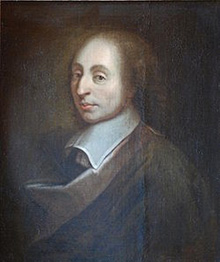
(Photo Source: Wikipedia)
Greatest Discoveries: Pascal was a crucial force in defining the probability theory. He developed this theory to try and help one of his friends make money gambling, and it ended up revolutionizing statistics. The theory states that events don’t happen purely by chance, but are based on prior events. For instance, if you have a bag of M&Ms and remove six brown ones, the probability of picking a brown M&M from that bag has now changed.
Fun Fact: Pascal turned from math to philosophy after what he described as a “night of fire” in which the world around him was illuminated. After this epiphany, Pascal became one of the first scholars to teach existentialism.
3. Euclid of Alexandria
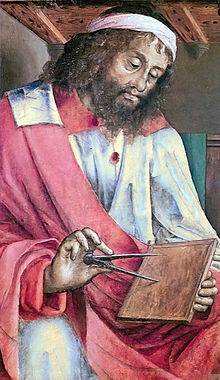
(Photo Source: Wikipedia)
Greatest Discoveries: Euclid is best known for his work on Elements, a compilation of the work of dozens of mathematicians before him. Elements aimed to translate the observations that past mathematicians had made into concrete rules, called “axioms” that people could use to make more complex deductions.
Fun Fact: Not much is known about Euclid’s personal life, but Elements is still one of the most influential math textbooks in history. It was the basis for early geometry, which is why Euclid is known as “The Father of Geometry.”
4. Pythagoras
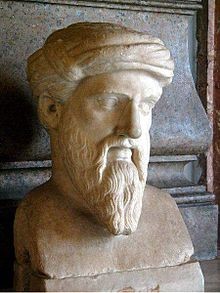
(Photo Source: Wikipedia)
Greatest Discoveries: Pythagoras was one of the first mathematicians to attempt to define universal rules for mathematics, rather than relying on strict observation. He developed five main axioms, including the famous discovery that the square of the hypotenuse of a right triangle is equal to the square of its other two sides. Pythagoras also developed number theory, which states that the world is run by a series of integers, and defined prime, perfect, and irrational numbers.
Fun Fact: Pythagoras was involved in the musical arts as well as math. He was a pioneer in music theory, defining the length of notes in terms of numbers, and noted that instruments are only harmonious when they are played in time with these numbers.
5. Isaac Newton
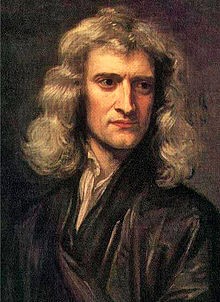
(Photo Source: Wikipedia)
Greatest Discoveries: Newton was a mathematics powerhouse! He discovered that the binomial theorem could apply to non-integer exponents, defined most cubic plane curves, and is one of the founding fathers of calculus. These discoveries revolutionized the scientific world, allowing fields like physics and astronomy to progress beyond what people thought was possible.
Fun Fact: Newton believed that God had chosen him to interpret the bible, and determined that the world would end no sooner than 2060. He made the determination to quell many popular concerns that the world was doomed to end in the near future.
6. René Descartes
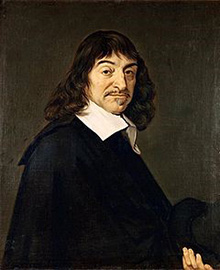
(Photo Source: Wikipedia)
Greatest Discoveries: Descartes’ work in mathematics was primarily in the realm of analytical geometry. He was the first person to link algebra to geometry by postulating that algebra can be interpreted in terms of geometrical shapes. He also linked math to philosophy as one of the first scholars to try and use math to define the interrelationship between ideas—which is the basis of our modern scientific method.
Fun Fact: Descartes believed that reason was the only way to reach a higher level of knowledge, rather than relying strictly on anecdotal observations, which is largely what was done before his time. He influenced future mathematicians by defining reflection and refraction, as well as helping to define the laws of motion.
7. Leonhard Euler
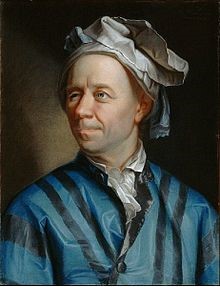
(Photo Source: Wikipedia)
Greatest Discoveries: Euler is best known for developing many of the notations used in modern mathematics. He was the first mathematician to define a function, writing equations with the notation “f(x)” to denote that a given function applies to x equation. In addition, he developed notations for trigonometric functions and was the first to use “e” as the symbol for the base of the natural log. He was also the first to use “Σ” to denote a sum, and “i”to denote an imaginary number.
Fun Fact: Euler has always been a popular icon in Europe. His picture was on the sixth series of the Swiss 10-franc banknote, and he has been prominently featured on postage stamps all over Europe.
8. G. F. Bernhard Riemann
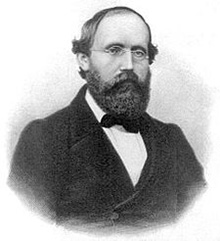
(Photo Source: Wikipedia)
Greatest Discoveries: Riemann developed “elliptic geometry,” which differs from Euclidian geometry in that it breaks away from the limitations of the two- and three-dimensional world. This theory extended geometry to infinite dimensions, creating the concept of “hyperspace” and developing the idea of general relativity, which is the basis for much of modern mathematics.
Fun Fact: Riemann is responsible for one of the greatest questions in mathematics. A reward of one million dollars has been offered to anyone who can prove his theory about the relationship between zeroes and prime numbers. Check out a 3D representation of his theory.
9. Fibonacci
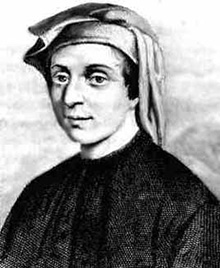
(Photo Source: Wikipedia)
Greatest Discoveries: Fibonacci is responsible for popularizing the Hindu-Arabic number system. He did this through publishing his book, Liber Abaci, meaning, “Book of Calculations.” This book showed how using the 0–9 number system with place values could broaden the scope of western mathematics. He also developed the Fibonacci sequence, in which each number is the sum of the previous two numbers.
Fun Fact: There are many mathematical concepts named after this founding father of mathematics, such as the Fibonacci identity and Fibonacci search technique. However, he’s memorialized by more than just the math community. There’s an asteroid and even a rock band named after him!
10. George Boole
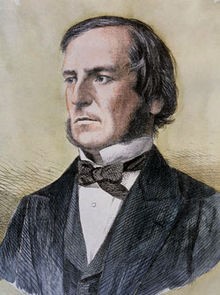
(Photo Source: Wikipedia)
Greatest Discoveries: George Boole invented Boolean Algebra with his book, The Laws of Thought. Boolean Algebra paved the way for the entire field of computer science by stating that there are universal mathematical laws that can be used to form the basis of all reasoning. Based on the probabilities for any system of events, Boole believed you could calculate the probability of any other event that is connected with the initial system of events.
Fun Fact: By the age of 19, Boole had already established his own school in his hometown of Lincoln, England. This would prove to be a stepping-stone for Boole’s future endeavors running Hall’s Academy and then his own boarding school.
11. Alan Turing
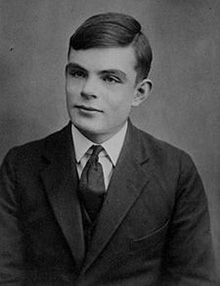
(Photo Source: Wikipedia)
Greatest Discoveries: Turing developed a test that was intended to determine if a computer is actually intelligent, sparking a huge debate in the scientific community about what defines artificial intelligence. Turing is also responsible for the development of mathematical biology, a field that seeks to analyze shapes and patterns in organisms.

@DreamBox_Learn










